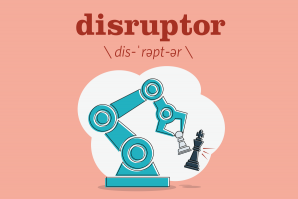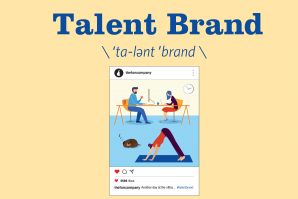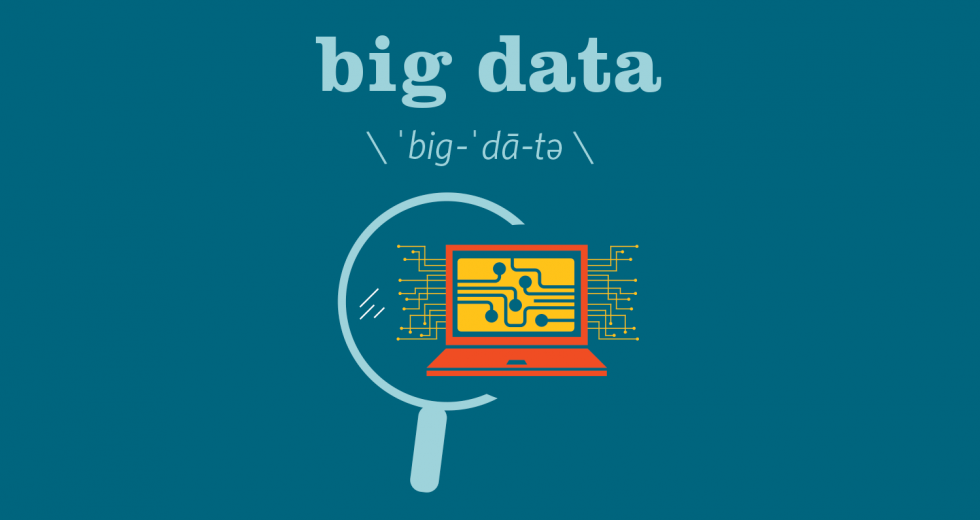The term “big data” is practically synonymous these days with the Big Bad Wolf. (Cambridge Analytica ring a bell?) But is big data really that big of a deal?
The origins of large data sets go back to the 1960s and ’70s with the development of the relational database, which stores data points that are related to one another, according to data management firm Oracle.
Around 2005, people began to realize just how much information users were generating about themselves through Facebook, YouTube and other online services, like age, gender, what we buy, how long we spend on websites and what ads we click through — essentially, everywhere we go online and what we do there. This realization led to the development of open-source frameworks like Apache Hadoop and Apache Spark to store and analyze that information, which could later be used to create predictive models to tell a company what products would likely sell — and to whom.
The Buzz
As the internet has gained such a hold over our lives, the volume and value of big data has skyrocketed. The analysis of customer usage patterns and product performance has become big business in an effort to target users more efficiently and, thus, more lucratively.
But for Sanjay Saigal, director of analytics strategy for the UC Davis Master of Science in Business Analytics program, the terminology can be somewhat misleading.
“For most of my career I worked with ‘small’ data: information coming from machinery in a factory or from pickup addresses for UPS vans,” Saigal says. “Big data, in the sense used today, is a few orders of magnitude larger,” but when broken down, big data is simply a collection of the smaller data sets.
The Word
But when the accumulation of all that data leads to privacy concerns, everything it stands for can be a concern.
“Most big data being collected today is collected simply because it’s there,” Saigal says. “Businesses have a license to collect data willy-nilly by tech-related social norms — when did you last read through an app contract before clicking ‘I accept’?”
But here’s a flipside to all this haphazard data collection.
“Much of my work today arises from businesses that are waking up to the value locked in their data. For instance, we’re using data from the Mondavi Center to fine-tune their pricing and programming to increase their social impact and relevance,” Saigal says. “Last year, we helped Lucky Brand (clothing company) trim hard-to-sell inventory to the tune of $6 million. … As a result of the data analysis, Lucky Brand will do better for all its stakeholders — customers, employees and shareholders. So … yes, promiscuous data collection has negative effects, and the regulatory systems do need to address the issue urgently, but the ability to collect and leverage big data also drives innovation.”
—
Get this and other stories delivered to your inbox weekly: Sign up for our free email newsletters by clicking or tapping here.
Recommended For You

Buzzwords: Disruptor
A company, technology, good or service that is so innovative and widely adopted it disrupts an existing market
In ordinary English, “disruptor” might conjure up images of a kid acting out in class, or someone holding up traffic. Among the startup set, though, disruptor has become one of the highest compliments one can receive — or give to oneself.

Buzzwords: Angel Investor
An affluent individual who invests their own money, independently of a firm, in an entrepreneurial company.
Investors — aside from having a propensity for ostentatious cars — can play a key role in a startup’s success. Beyond a financial contribution, they can have an affect on other facets of the business too.

Buzzwords: Silo
A part of a company that works in isolation from others, making for a culture of limited communication
Silos can be formed when making sure employees’ time is spent only on their expertise or when everyone in the company is so busy they feel they don’t have time to reach beyond their domain.

Buzzwords: Talent Brand
An employer’s public-facing identity that reflects what it’s like to work at the company
Although companies may try to appear glossy and appealing on that platform, it can still be informative to gauge the company’s values, perks and just how genuine the smiles on employees’ faces may be.



